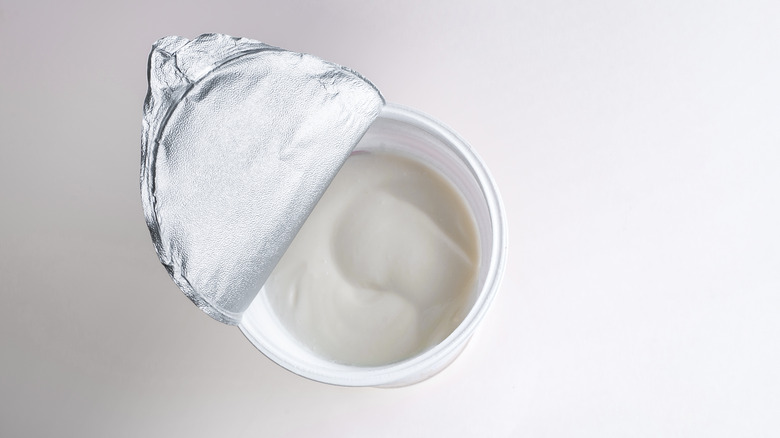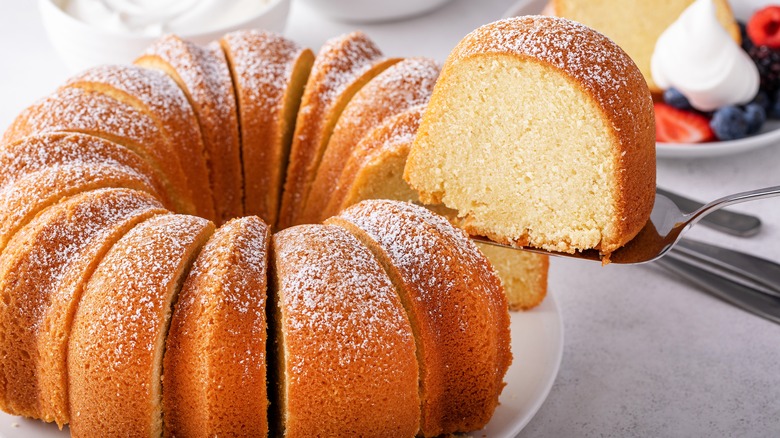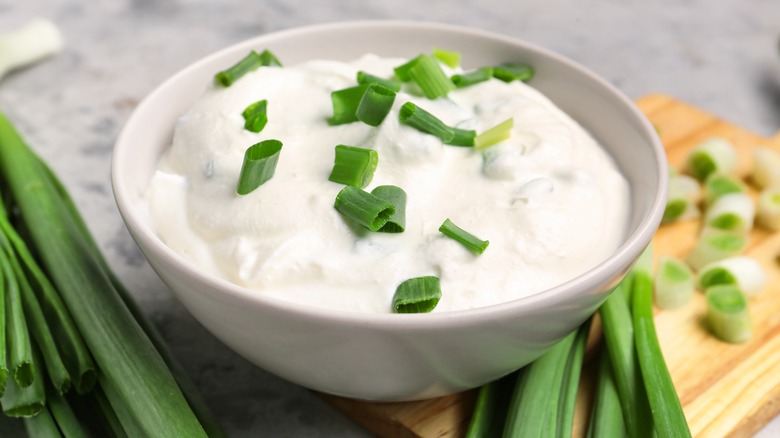How Long Sour Cream Will Stay Fresh After Opening
Sour cream is a thick and tangy ingredient that has moved beyond mere condiment status. No longer is it just dolloped on dishes like nachos and baked potatoes; it's also integral in baking and preparing creamy sauces. Although there are many reasons to always have sour cream on hand, that container from the supermarket won't stay fresh forever.
According to the United States Department of Agriculture, most dairy products go bad within seven days. However, sour cream should stay fresh for up to three weeks in the refrigerator. Before purchasing the container, check the sell-by date on the lid or bottom to ensure it hasn't been sitting at the supermarket for too long — that way you can get the most out of your money.
Since it normally has a sour aroma when fresh, it may be difficult to tell when sour cream has gone bad. However, if the smell is unfamiliar and pungent, discard it. If the cream changes color, that indicates it's gone rancid as well. You also should check for yellow or green mold on the surface and, if seen, throw the entire container away.
Unopened sour cream can be frozen for up to six months; however, it will have a different texture once it is thawed. The dairy will separate, which isn't ideal for topping chili or making dips. Defrosted sour cream is best for baking, where the extra fat will make baked goods more moist; just note, it should be used within two days.
What to do with sour cream before it goes bad
If your container of sour cream is nearing its expiration date, consider using the ingredient in baked goods to add moisture; this works especially well for cakes and quick breads. Even if you don't have a need for the treat immediately, most baked goods can freeze and defrost well, which provides a great reason to avoid wasting the half-used container of sour cream; just bake in advance.
Sour cream can be added to recipes instead of milk or heavy cream. It adds fat to the batter without the added liquid, making recipes more tender and rich. Its high fat content also coats the flour's gluten strands, preventing them from developing and toughening the dish.
Sour cream can be substituted one-for-one for other dairy products, so recipes don't need to be altered too much for this swap. Try it in delicate chocolate cakes or denser coffee cakes for superior results. Whether baking from scratch or upgrading a Bisquick Coffee Cake, sour cream can be your secret weapon.
How to make homemade sour cream
If you find that the sour cream in your refrigerator has become a science experiment and is unusable, and you need some in a pinch, it can be made at home with just two ingredients and patience. Commercially produced sour cream combines dairy (heavy cream or milk) with a lactic acid-producing culture, and many contain preservatives. Homemade sour cream uses heavy cream and lemon juice to do the same thing over 24 hours.
Similar to making homemade buttermilk, the acid curdles the dairy, thickening and souring it over time. To prepare a cup of homemade sour cream, combine one tablespoon of freshly squeezed lemon juice or distilled white vinegar in a glass jar or bowl and cover it with cheesecloth or a coffee filter so it can breathe. Allow the sour cream to thicken overnight on the countertop, then transfer the mixture to the refrigerator. Stir the sour cream before using. Homemade sour cream will stay fresh for about a week in an airtight container in the fridge.



